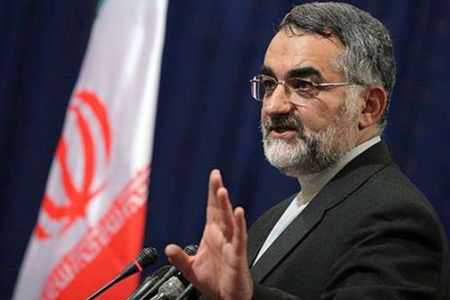Senior Iranian lawmaker Alaeddin Boroujerdi says Turkey and Brazil will not be present in Iran’s multifaceted talks with major world powers.

On October 14, EU Foreign Policy Chief Catherine Ashton expressed the West’s readiness to return to negotiations and proposed three-day talks with Iran in mid-November in the Austrian capital of Vienna.
Dialogue between Iran and the P5+1 — Britain, China, France, Russia, and the US plus Germany — has been stalled since October 1, 2009, when the two sides met in Geneva.
Iran on Tuesday announced that its multifaceted talks with the P5+1 would restart on December 6 in Switzerland.
“We will have two rounds of talks with the West; one is talks with the P5+1 and the other is negotiations with the Vienna Group — France, Russia, the US, and the International Atomic Energy Agency (IAEA) — about fuel for the Tehran reactor,” head of the Majlis National Security and Foreign Policy Commission told Khabar Online on Sunday.
Tehran has stressed that it would negotiate the issue of a nuclear fuel swap with the Vienna group within the framework of the Tehran declaration, and its talks with the P5+1 would not include nuclear issue.
“Regarding negotiations with the Vienna Group based on the Tehran declaration, the three countries (Iran, Turkey and Brazil) wrote a letter to IAEA chief [Yukiya Amano] and stressed that all three countries would be present in talks,” Boroujerdi said.
Iran signed a declaration with Turkey and Brazil on May 17 based on which it agreed to exchange 1,200 kg of its low-enriched uranium on Turkish soil with nuclear fuel.
Boroujerdi refrained from giving his opinion about the result of negotiations and said the US has lost the political struggle.
“When the foreign ministers of the European countries were in Tehran they explicitly said that we (Iran) are not allowed to use two centrifuge machines but today we have crossed all these borders,” he added.
The US and its allies used their influence on the UN Security Council to press for fresh sanctions against Iran over the country’s nuclear program which they claim is aimed at developing nuclear weapons.
Iranian officials have repeatedly refuted the accusations, arguing that as a signatory to the Nuclear Non-Proliferation Treaty and a member of the IAEA, Tehran has the right to use peaceful nuclear technology.
MYA/HGH/MMN

Leave a Reply